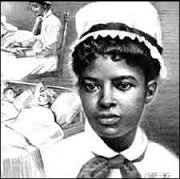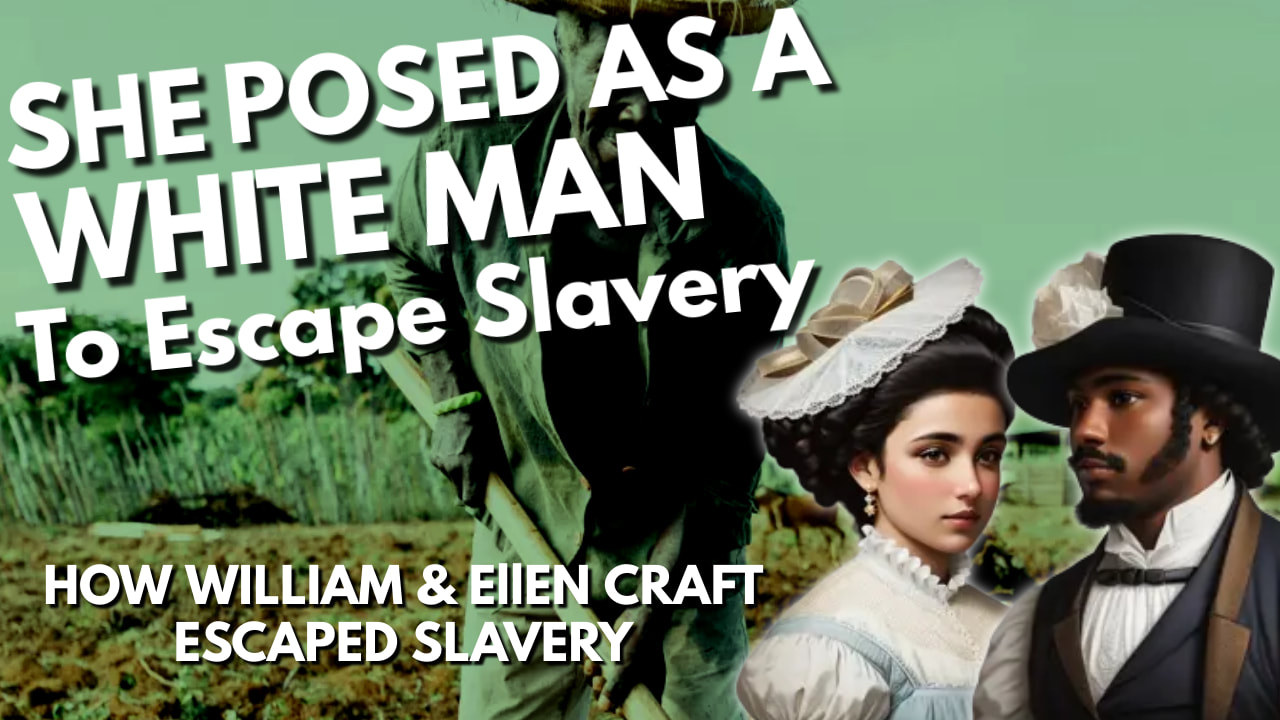|
On May 7th, 1845 Mary Eliza Mahoney was born in Dorchester, Massachusetts to parents Charles and Mary Jane Stewart Mahoney. Her family lived in Boston, Massachusetts where she would first gain interest in the nursing field as a teenager. Mahoney began working as a private-duty nurse for the New England Hospital for Women and Children; her next move was being admitted into the New England Hospital’s nursing program. As a nursing student Mahoney was challenged to endure and overcome the rigorous schedule on a nurse. She would work 16 hours a day to complete her objectives, while caring for 6 patients at a time. In 1879 Mahoney became the first African-American woman to graduate nursing school in America. Because racism exists Mahoney had trouble finding nursing jobs so she began private nursing to make a living. She became well known for her skills and her ability to build relationships with her patients. Prominent members of the Boston community sought out Mahoney because of her impeccable reputation. She was a five foot tall, 90 pound force of nature; she looked racism in the eye, laughed and accomplished her goals. In 1909 she was recognized by the newly formed National Association of Colored Graduate Nurses (NACGN), as a leading pioneer in the field of nursing. She was invited to give the welcome address at the inaugural (NACGN) Convention in 1909, made a lifetime member and elected Chaplain. Mahoney was one of the first women to vote in Boston after the 19th amendment was ratified in 1920. She briefly lived in Long Island, New York where she became the supervisor of the Howard Orphan Asylum for Black Children. In 1979 she was inducted into the Nursing Hall of Fame, and in 1993 she was inducted into the Women’s Hall of Fame. She lived until the age of 81 passing away from breast cancer in 1926. Mahoney was a fearless woman willing to challenge the status quo, racism and any other obstacle that stood in her way. Ms. Mary Eliza Mahoney, we proudly stand on your shoulders. J.A. Ward References:
http://www.biography.com/people/mary-mahoney-41021#pioneer-of-nursing-and-voting http://www.blackpast.org/aah/mahoney-mary-eliza-1845-1926 http://www.jacksonvilleu.com/resources/history-of-nursing/mary-eliza-mahoney/#.VvamauIrLIU
0 Comments
On October 18th, 1926, Charles Edward Anderson Berry was born in St. Louis, Missouri. His parents were Martha and Henry Berry. He was influenced by music at an early age playing in church and at school. While attending Sumner High School, he performed in the school's talent show and amazed the audience. Shortly after the performance, he began learning to play the guitar from Ira Harris a St. Louis Jazz legend; Harris taught Berry the basic fundamentals of becoming a great entertainer. As a teen Berry found himself in legal trouble, he and some friends dropped out of school and were arrested for robbery. Berry spent the next three years in a boy’s reform school in Jefferson, Missouri, and was released on his 21st birthday. He needed to make a living, so he began working in construction, photography, cosmetology, and on the General Motors Fisher Body plant assembly line. In 1951, Berry begin playing in a band with former high school classmates. A move that was helping Berry to become a household name. In 1952, Berry joined the St. Johns Trio and the band allowed him to incorporate his upbeat brand of country music with pop and jazz. The band was a hit, so much so that they began attracting white people to their shows in a predominantly black community. Berry’s reputation as a showman was growing and his band was becoming well known, he was also becoming able to make music full-time. He traveled to Chicago, Illinois in 1955, where he met Muddy Waters who arranged a meeting between Berry and Chess Records. During the meeting, Berry played his song “Ida Red” for the executives and they immediately fell in love with his music. The record label renamed the song “Maybellene” which became Berry’s first top ten hits and the birth of “Rock & Roll.” During the late 1950s, Berry produced many more top ten hits such as “School Day,” “Rock & Roll Music” and “Sweet Little Sixteen.” During performances, he would dazzle the crowd with his famous duck walk dance move. He was also recognized for his pioneering music that transcended music genres, race, and culture. Berry opened his own nightclub in downtown St. Louis called Club Bandstand in 1958. The following year he met a young Native American girl in Mexico who was a waitress. Berry brought the girl back to St. Louis to work in his club, little did he know the girl was 14 years old and sometimes worked as a prostitute. Berry fired the girl after only working a few weeks. She was later arrested for prostitution and Berry was charged in connection with her work. In 1961, he was convicted and served 20 months in prison in the state of Indiana. He was released from prison in 1964, upon his release he learned that bands such as the Beetles and the Rolling Stones were playing his rock and roll music. Berry did not let the new competition stop his shine, he went on to record such hits as “Nadine,” “No particular Place To Go” and “My Ding-A-Ling.” In 1979, Berry released his last album “Rock It” which received fair reviews from the music world, but he was able to continue perfuming through the 1990s. In 1985, he was honored with a lifetime achievement award at the Grammy’s. In 1986, Berry was the first musician to be inducted into the Rock & Roll Hall of Fame. He was literally one of the most influential American musicians of all time. Berry was able to infuse country music, jazz, and pop music to create a new genre of music. Rock & Roll music is often thought of as music created by and for white America; this notion can’t be further from the truth. Chuck Berry like many other black musicians used their God-given talent to express what was in their heart. He did not set out to create a new genre of music but his destiny was fulfilled. Though he is often overlooked and forgotten, when we think of Rock & Roll, just know that neither the Beetles, Rolling Stones nor Rock& Roll itself would not exist if it were not for the genius of Chuck Berry. Mr. Charles Edward Anderson Berry, we proudly stand on your shoulders. J.A. Ward. Click here to support the OTSOG book series |
Details
Categories
All
Click Here to join our mailing list
|
Contact Us: |
Connect With Us |
Site powered by PIT Web Design



 RSS Feed
RSS Feed



